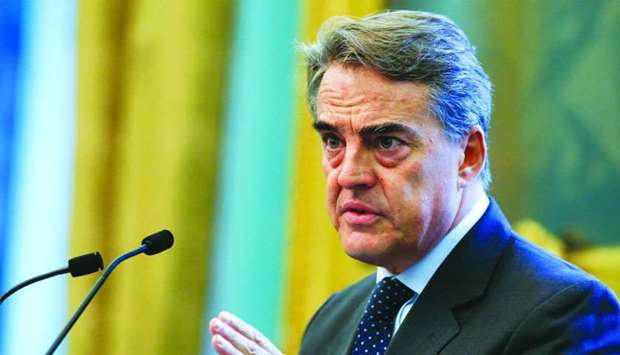*Congestion in the Gulf skies threatens the efficient functioning of their super connectors, points out IATA director general
Decongested skies will provide further thrust to Qatar Airways and other “super connectors” in the GCC region, according to IATA director general and CEO Alexandre de Juniac.
“Congestion in the Gulf threatens the efficient functioning of their super connectors,” de Juniac told Gulf Times in Geneva.
“While we don’t have too many concerns about GCC airports now, the same cannot be said of the Gulf skies. We are still piling up delays in the region. There is lack of co-operation among the GCC states; not to mention the problem arising out of the blockade on Qatar. This is adding another difficulty to that,” de Juniac said at the IATA Centre here.
“Last year also, we discussed the same issue. Unfortunately, even after a year, the situation has not improved in relation to the Gulf skies. We are still suffering…airlines are still suffering due to lack of management,” de Juniac pointed out.
Generally on air traffic management, the IATA director general said, “The 2018 European summer was an air traffic management mess of epic proportions. Delay minutes ballooned to 14mn minutes by end October — up 53% on 2017.
“How long is 14mn minutes? That is 26 years! It is a completely unacceptable service record for a critical infrastructure function.”
He said issues with air traffic management are not confined to Europe or the GCC region. Delays in China are rampant as demand growth outpaces the system’s capacity growth. And we see similar problems all over the world.
Asked what IATA would tell governments in relation to air traffic management, de Juniac said, “The first message is that they must do better. The technical capabilities for smooth air traffic management exist.
“The problem is finding the political will to implement them. That can be because solutions need cross-border co-operation, because of vested interests in the controller communities or because collaboration is needed with military users of airspace.”
As governments work to overcome these blockers, de Juniac noted, “We have encouraged European states to build strategic national airspace plans. So far France, Spain, Bulgaria, Italy and Poland have signed agreements to develop these strategies in co-operation with IATA. And Poland and Italy are the first to deliver.
“Since industry requirements are consistent from state to state, the result of these individual strategies should present a harmonised result — one that pushes toward the elusive goal of the Single European Sky,” he said.


